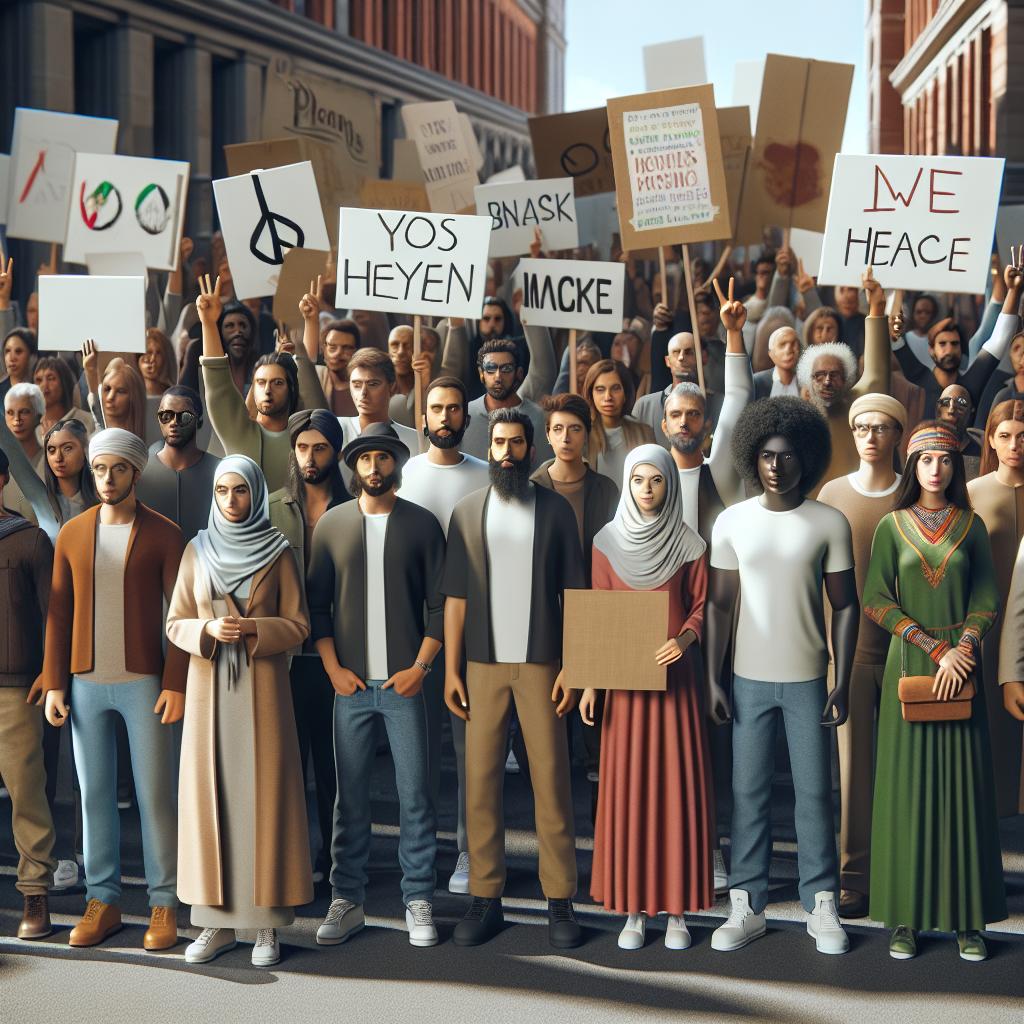

Protesters in Peaceful Disagreement
In a whirlwind of events, the cities of Melbourne and Ottawa are keeping an eye on local and national authorities as they navigate through growing unrest and political changes. The latest developments in both cities reveal serious concerns about safety and leadership, indicating that society is at a pivotal moment.
On Tuesday, the government of Victoria made waves by proposing new restrictions targeting protesters. This decision came after troubling incidents involving antisemitism, including an arson attack on a Melbourne synagogue earlier this month. Premier Jacinta Allan took a stand against what she termed “menacing behavior,” after fearful worshippers were trapped inside a Sydney synagogue during protests lasting three hours. “That’s not peaceful protest,” she noted, underscoring the urgency behind the proposed laws.
The government wants to ensure that people have the right to gather and pray without fear. Allan stated, “Antisemitism is a cancer, and we must leave no stone unturned,” emphasizing the need to combat all forms of racism to maintain the social fabric of Victoria. The proposed laws aim to create safe zones around places of worship to protect religious gatherings and prevent disturbances.
In addition to safe access areas, the rules would prohibit protestors from flying flags or displaying symbols related to recognized terrorist groups. Notably, the use of face masks intended to conceal identity would also be banned. This shift towards stricter regulations has garnered support from organizations opposing antisemitism, including Dvir Abramovich, chair of the Anti-Defamation Commission, who called the government’s move a declaration of war on hate.
Freeland’s departure sent a shockwave through the political community, with her fellow cabinet member, Anita Anand, expressing her sorrow over the decision. In a heartfelt message, Anand mentioned the close working relationship she had with Freeland and how the unexpected news hit her hard.
In her resignation letter, Freeland mentioned that their talks turned sour over budget-related issues, which led Trudeau to offer her a lesser role. This back-and-forth raises eyebrows about the stability of the governing party and how it plans to tackle economic challenges heading into the new year.
Looking at both situations, it’s clear that a broader trend of unrest is taking shape. Whether it’s the governmental response to antisemitism in Melbourne or the political tumult in Ottawa, both scenarios illustrate a society under pressure, with leaders adapting to an ever-evolving landscape.
As Melbourne strives to safeguard its multicultural communities through legislative action, Ottawa grapples with questions about leadership effectiveness in the face of declining popularity. These are not just local concerns; they reflect significant issues that many nations face as they navigate through human rights, safety, and governance.
As we look ahead, it’ll be interesting to see how these stories unfold and what measures will be adopted to either restore faith in leadership or call for broader societal changes. Both cities are at crossroads, offering a glimpse into the dynamic nature of political and social landscapes.
News Summary Multiple wildfires are currently spreading across North and South Carolina, prompting a state…
News Summary Columbia, South Carolina, witnessed a significant event on March 7, 2025, as Brad…
News Summary Columbia, South Carolina, is gearing up for a significant winter storm expected to…
News Summary In Newberry County, South Carolina, a manhunt is underway for 20-year-old Landon Major…
News Summary In Pomaria, South Carolina, a disturbing incident has resulted in the arrest of…
News Summary The Laurens County School District 55 is making strides in enhancing local education,…